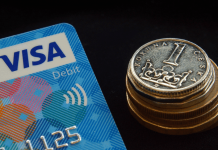The European Health Insurance Card (EHIC) is a crucial tool for anyone traveling within Europe, offering access to healthcare services during their stay. This article aims to guide you through obtaining the EHIC, highlighting its benefits and application procedures.
Understanding how to secure this card ensures peace of mind while exploring European destinations. Everything you need to know about EHIC is simplified and explained here.
Understanding EHIC
The European Health Insurance Card (EHIC) grants you access to necessary healthcare during stays in European countries. It works in tandem with your national health insurance, ensuring coverage abroad.
This card doesn't replace travel insurance but complements it, covering state-provided healthcare. It's a practical solution for health security while traveling in Europe.
Travel Benefits of EHIC
EHIC offers numerous advantages for travelers within Europe. These include:
- Access to healthcare: Ensures similar treatment to locals in public healthcare facilities.
- Reduced Costs: Often, medical services are free or at a lower cost.
- Simplified Process: Eliminates the need for complex paperwork or upfront payments.
- Peace of Mind: Provides reassurance of healthcare access in case of illness or injury.
Eligibility Criteria
Understanding who can apply for the European Health Insurance Card is vital. This section outlines the criteria, ensuring clarity about eligibility.
Who Can Apply?
Individuals residing in the European Union, European Economic Area, or Switzerland are eligible for the card. It's not nationality but residence status that determines eligibility.
It would be best to be insured or covered by a state social security system. The card is available to all age groups, ensuring healthcare access for families and solo travelers.
If you're not a resident of these areas, alternative travel insurance is necessary. The EHIC is not available for private healthcare services.
Necessary Documentation
To apply, you will need:
- Valid Identification: Passport or national ID card.
- Proof of Residence: Utility bill or rental agreement.
- Social Security Number: As registered in your country.
- Health Insurance Information: Details of your current health insurance plan.
Applying for EHIC
Obtaining this health card involves a few straightforward steps. This guide simplifies the application procedure.
Step-By-Step Guide
Follow these steps to apply:
- Check Eligibility: Ensure you meet the criteria mentioned above.
- Gather Documents: Collect all necessary documentation.
- Apply Online or in person: Depending on your country’s system.
- Submit Application: Complete and submit the application form.
- Wait for Processing: It may take a few weeks to process.
- Receive Card: The card will be mailed to you.
Contact information
Govt. Address and Telephone Number. (01 201 8500). For assistance, contact the relevant government department. The address will vary based on your EU, EEA, or Switzerland location.
The general helpline for EHIC inquiries is 01 201 8500. They can guide you through the application process, answer questions, and provide updates on your application status. Remember, it is essential to contact the correct department for your region.
Usage of EHIC
The European Health Insurance Card is a practical tool for healthcare during your travels in Europe. This section explains where and how you can use it effectively.
Where it Can be Used?
The card is valid in all EU countries, plus Iceland, Liechtenstein, Norway, and Switzerland. You can use it at any state-run healthcare facility in these areas. It's essential to confirm the facility accepts EHIC before receiving treatment.
Remember, the card is not valid outside of these regions. For non-EU travelers, alternative health coverage is needed. In emergencies, the card ensures immediate care without financial worry.
Services Covered
EHIC covers a range of health services:
- Emergency treatment and care during illness or accidents.
- Routine medical care for pre-existing conditions.
- Maternity care, provided you're not traveling to give birth.
- Oxygen therapy and kidney dialysis, but these must be pre-arranged.
- Prescriptions and routine medical examinations in some cases.
- It also covers treatment for chronic diseases under certain conditions.
Important EHIC Information
Important Considerations Knowing the limitations and exclusions of the card is essential. This ensures you're fully informed about its scope.
Limitations of EHIC
EHIC does not guarantee completely free services. Co-payments are common in some countries. It only applies to state-provided healthcare, not private hospitals or clinics. The card is not a substitute for travel insurance; it doesn’t cover things like mountain rescue or repatriation.
What EHIC doesn’t Cover
The card won’t cover:
- Private healthcare costs.
- Non-urgent treatment can wait until you return home.
- Costs of traveling specifically for treatment.
- Repatriation expenses in case of severe illness or injury.
EHIC Renewal and Expiry
Renewal and Expiry: Understanding your card's renewal process and validity period is important. This section provides all the necessary details.
Process for Renewal
Renewal must be done before your card expires. Check the expiry date well in advance. Most countries allow renewal online, which is convenient. You'll need the same documentation as when you first applied.
Processing times vary, so apply early. Once renewed, a new card will be sent to your registered address. Keep your contact details updated to avoid issues.
Validity Period
Typically, the card is valid for up to 5 years. However, this can vary depending on your country of residence. Always check the expiry date on your card.
If your card expires while you're abroad, you may be able to get a provisional replacement certificate. Remember, an expired card won’t be accepted for healthcare services.
Financial Aspects
The financial implications of using the European Health Insurance Card are significant. This part delves into how it affects insurance premiums and interest rates.
Impact on Insurance Premiums
Holding an EHIC may influence your travel insurance premiums. Insurers often recognize the cost-saving potential of EHIC and may offer lower premiums as a result. However, it's not a replacement for travel insurance.
The card covers health care, not travel-related risks like lost baggage or cancellations. Always disclose your EHIC when purchasing travel insurance.
Some policies require you to use your EHIC for medical claims where applicable, potentially reducing your out-of-pocket expenses.
Interest Rates Related to Health Insurance Costs
While EHIC doesn't directly affect interest rates, it can indirectly impact your healthcare expenses. Reducing or eliminating certain healthcare costs abroad can lessen the financial burden.
This can be particularly relevant if you're paying for health services via a credit facility with interest. However, EHIC's role in interest rates concerns cost avoidance rather than rate modification.
It's wise to consider how using the card can play into your broader financial health strategy, especially when dealing with healthcare costs on credit.
Complete Guide to the European Health Insurance Card
Understanding the European Health Insurance Card is essential for hassle-free travel in Europe. This guide provided a comprehensive overview, from eligibility to application and its usage.
Remember, while EHIC offers valuable health coverage, it's not a substitute for full travel insurance. With this knowledge, you can travel confidently, knowing you're well-prepared for health-related eventualities.
Keep this card alongside your essential travel documents for a secure and worry-free European adventure.






